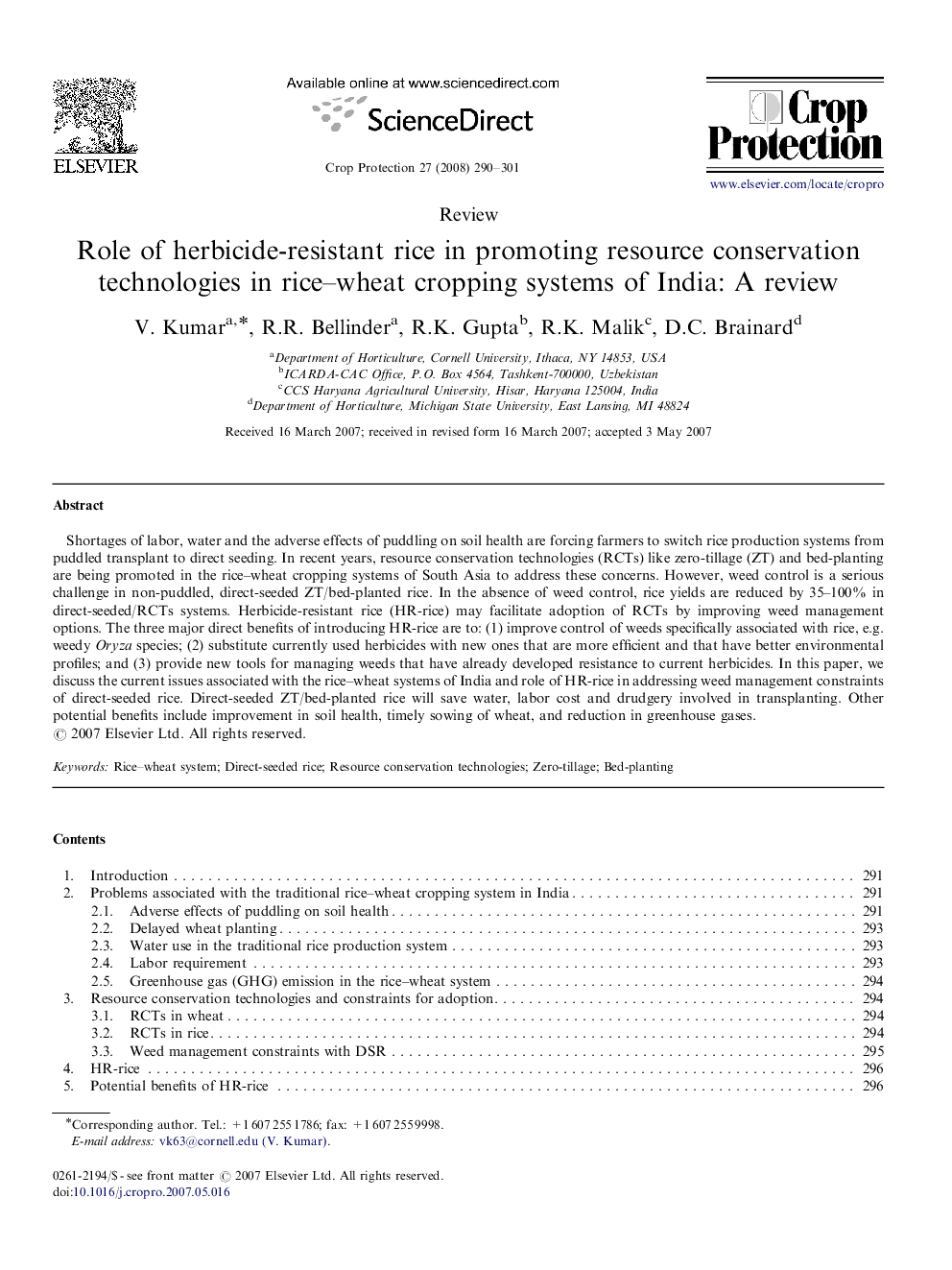| Article ID | Journal | Published Year | Pages | File Type |
|---|---|---|---|---|
| 4506917 | Crop Protection | 2008 | 12 Pages |
Shortages of labor, water and the adverse effects of puddling on soil health are forcing farmers to switch rice production systems from puddled transplant to direct seeding. In recent years, resource conservation technologies (RCTs) like zero-tillage (ZT) and bed-planting are being promoted in the rice–wheat cropping systems of South Asia to address these concerns. However, weed control is a serious challenge in non-puddled, direct-seeded ZT/bed-planted rice. In the absence of weed control, rice yields are reduced by 35–100% in direct-seeded/RCTs systems. Herbicide-resistant rice (HR-rice) may facilitate adoption of RCTs by improving weed management options. The three major direct benefits of introducing HR-rice are to: (1) improve control of weeds specifically associated with rice, e.g. weedy Oryza species; (2) substitute currently used herbicides with new ones that are more efficient and that have better environmental profiles; and (3) provide new tools for managing weeds that have already developed resistance to current herbicides. In this paper, we discuss the current issues associated with the rice–wheat systems of India and role of HR-rice in addressing weed management constraints of direct-seeded rice. Direct-seeded ZT/bed-planted rice will save water, labor cost and drudgery involved in transplanting. Other potential benefits include improvement in soil health, timely sowing of wheat, and reduction in greenhouse gases.
